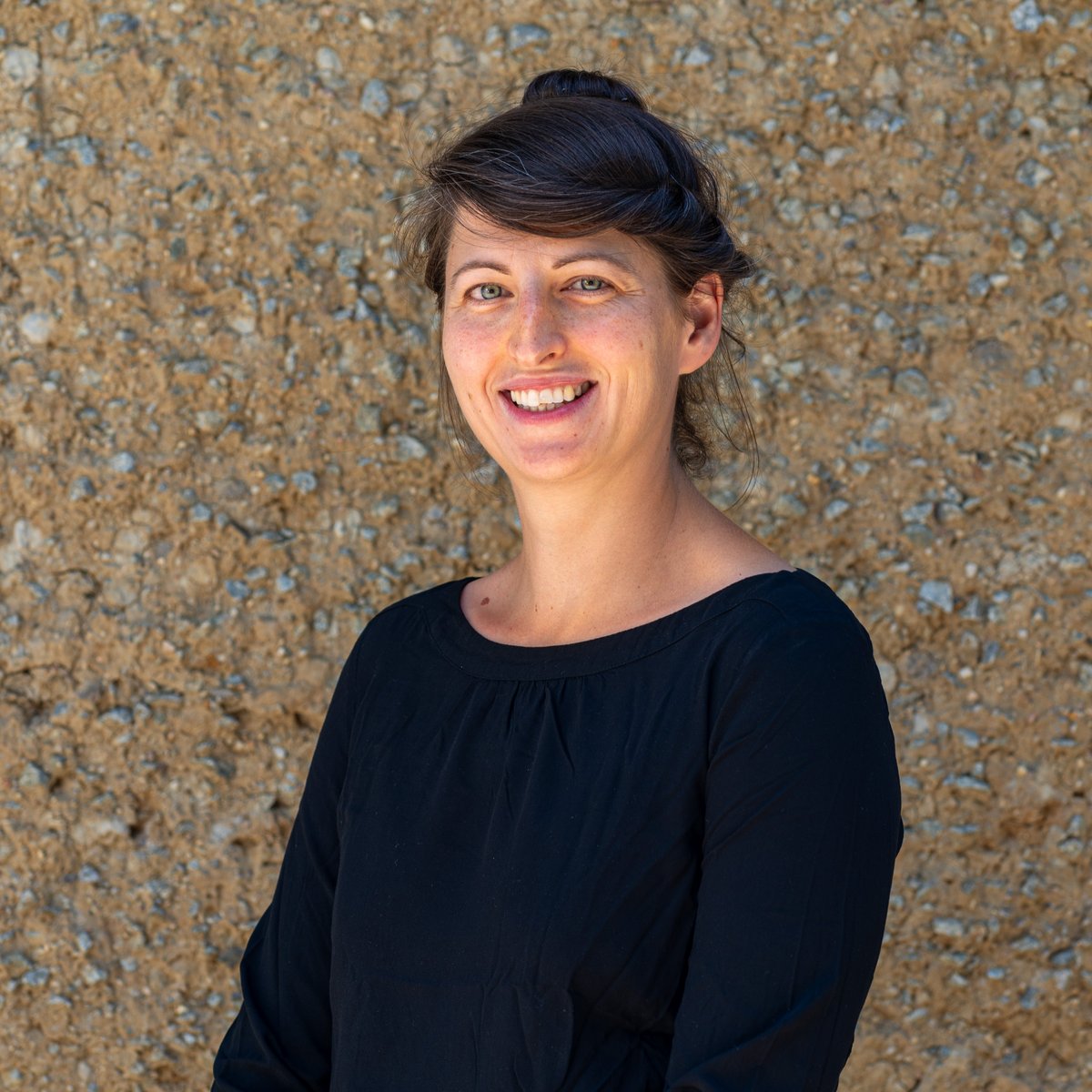
Agnès Klöden-Billemont Arch.D.E.
Research associate/PhD student
Konrad-Wachsmann-Allee 4
03046 Cottbus
LG 2B, R. 1.16
Tel. +49 355 - 69 2075
Fax. +49 355 - 69 3046
kloedenb(at)b-tu.de
- Curriculum
- Research
- Publications and Conference communications
- Exhibitions, workshops, and other activities
| currently | doctoral project: "Urban Mix in New Urban Neighborhoods. Discourse and practice of a paradigmatic model in Germany and France. (working title)" |
| since 2015 | academic assistant at the BTU Cottbus-Senftenberg at the department of urban planning. |
| 2014 - 2015 | Lecturer for architecture and urban planning, Academy of Fine Arts, Nuremberg. |
| 2012 | Founding of Atelier2+ with Elena Pavlidou-Reisig |
| 2011 | Freelance work in various architectural offices in Berlin |
| 2008 - 2010 | Collaboration with LIN Architects-Urbanists, Berlin |
| 2007 - 2009 | DSA Architecte-Ubraniste, Ecole Nationale Supérieure d'Architecture, de la Ville et des Territoires à Marne-la-Vallée |
| 2006 - 2007 | Collaboration with Atlantes Architects, Lille |
| 2006 | Architecte diplômée d'Etat |
| 2001 - 2006 | Studies of architecture in Lille (ENSAPL) and Gothenburg (Chalmers) |
"Urban mix in new urban districts. Discourse and practice of a paradigmatic model in Germany and France. (working title)"
Since the questioning of the model of the modern city in the course of the 1960s and 1970s, a broad consensus has been established on the qualities of the historically evolved city (Reicher, Klein 2017:121; Roskamm 2013). A central point of criticism of modernism was the strict separation of functions, and "terms such as urbanity, mix and density have [since] established themselves as universally recognized guiding principles" (Roskamm 2013:13). The current call for urbanity is also in line with trends in the housing market (Bricocoli, Savoldi 2013) and the goals of the sustainability discourse (UBA, 2018). 'Urban living' has become a widespread marketing argument (Reicher, Klein 2017:121). The concept of an "urban mix" is associated with a social and functional mix as well as spatial and architectural density. However, these aspects are not defined more precisely and there is no uniform understanding of this concept. In Germany, the debate about such a "mixed city" is very much burdened by its "historical-cultural dimension" (Roskamm 2013; Frey, Koch 2010). This tendency threatens to ignore the substantive or programmatic aspects of these guiding principles. In France, there is also a lively debate on the social and functional mix in new urban development projects. There, however, these are mainly discussed in terms of urban production (la fabrique de la ville) and the role of public action (l'action publique). This work will deal with the model of the urban mix and the question of the production of mixed new urban districts in Germany and France. The focus is on actors involved in the development of urban neighborhoods: in particular on strategies for action and forms of cooperation between private investors and public decision-makers. The aim is to examine the transferability of approaches and practices to the situation in Germany by analyzing French examples.
Future Narratives of Small Towns
The scientific aim of this DAAD-funded PROCOPE project, which involves early career researchers and established researchers from BTU Cottbus-Senftenberg and Université Clermont Auvergne, is to compare emerging future narratives about small towns in France and Germany and to contextualize them historically in their respective contexts in order to distinguish similar and different development trajectories. Furthermore, we want to examine the emergence of local territorial narratives and question their influence (or lack of influence) on urban development as well as on local development practices and the conflicts that arise in this context. In other words, we aim to gain new insights into the discursive urban practices with a focus on small towns in the new/post-pandemic context. These questions will be explored through case studies in selected regions of both countries, in particular in Auvergne (France) and Lusatia (Germany) - the location of the applicant university institutes - using different thematic approaches.
Impact research in architecture and urban planning
The conception of architectural and urban planning as well as public open spaces such as parks and squares is usually associated with ideas regarding the social, societal, cultural, political and identity effects to be achieved. So far, however, there has been no specification of the actual fields of impact and the research methods and theories that can be used to achieve them.
The DFG network Impact Research in Architecture and Urbanism: Interdisciplinary Theories and Methods responds to this clear need for definition work for the concept of the effects of the built environment and bundles knowledge that is scattered across disciplines and focuses on specific fields of impact: on conscious and unconscious perceptions by individuals, on individual or collective patterns of behavior and use, and on the effects that architecture has in spheres such as the economy, social affairs and culture. In this way, the network focuses its research interest on the intentions of actors during the design or planning phase of architecture, which have been much more researched to date.
2022 "Nantes, Iconic Palimpsest - From Landmark to Flagship" (Lecture) at the RC21 Conference "Ordinary Cities in Exceptional Times" held at the Harokopio University in Athens from 24 - 27 of August.
Flamm, Lena; Maikämper, Moritz; Klöden-Billemont, Agnès; Stevens, Miller; Weidner, Silke: (Hg.)
"PROVINZSTÄDTE NEU DEFINIERT – Hochschultag vor Ort der Nationalen Stadtentwicklungspolitik - Cottbus 2017", Tagungsdokumentation, BTU Cottbus-Senftenberg 2017
2017 "PROVINZSTÄDTE NEU DEFINIERT" Hochschultag vor Ort der Nationalen Stadtentwicklungspolitik - BTU Cottbus-Senftenberg – Member of the organisation team and presentation in the workshop on public services
2016 "Montreuil - une nouvelle den(s)cité" Workshop with the City of Montreuil, Master students of the Ecole d'Architecture de la Ville et des Territoires de Marne-la-Vallée and BTU Cottbus-Senftenberg (FG Urban Planning).
2016 "Conversion of large housing estates - Berlin Marzahn - Hellersdorf" (city tour) as part of the study trip of the Post-Master Program (DSA) "Architecte - Urbaniste" of the Ecole d'Architecture de la Ville et des Territoires de Marne-la-Vallée.
